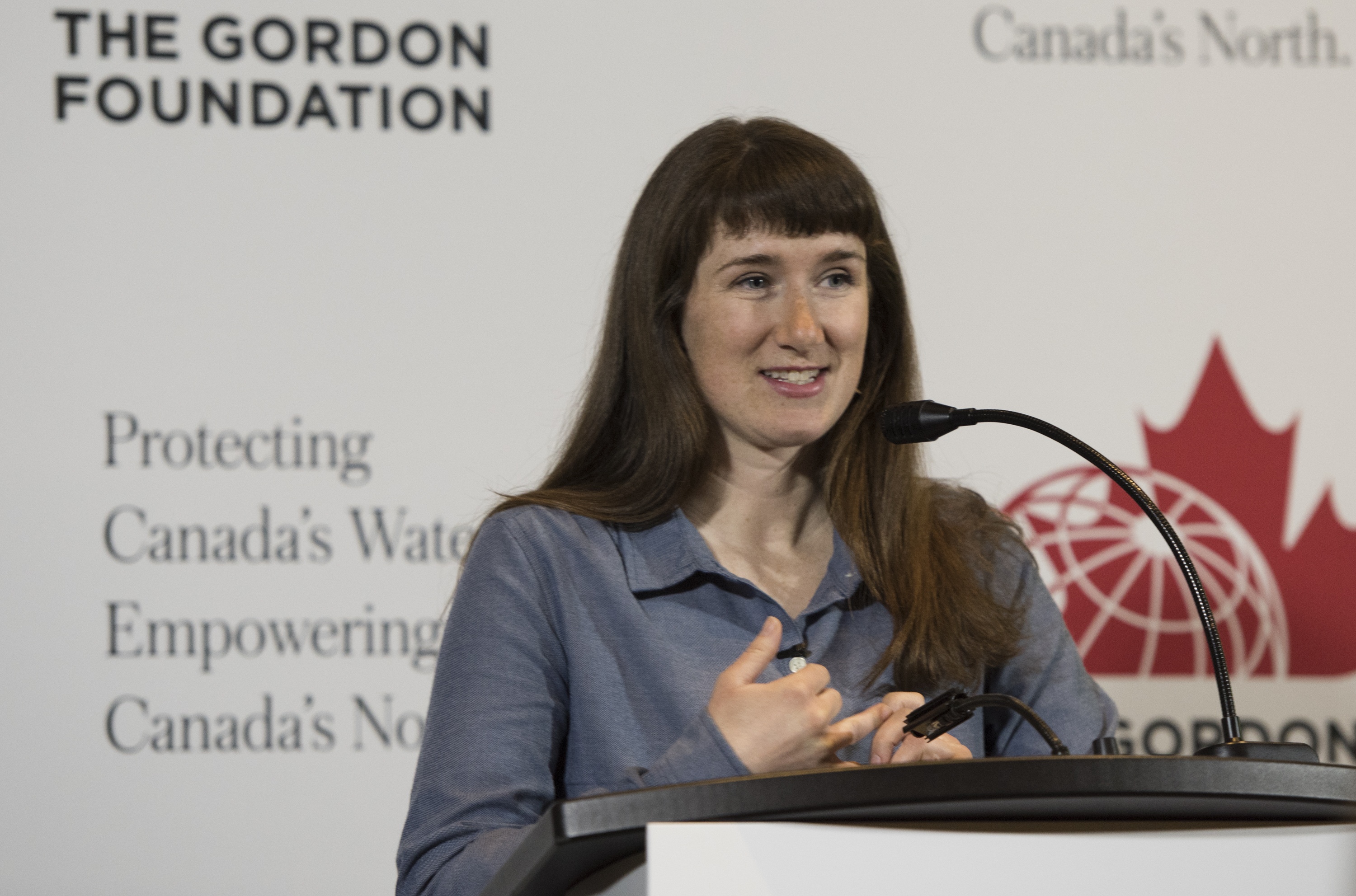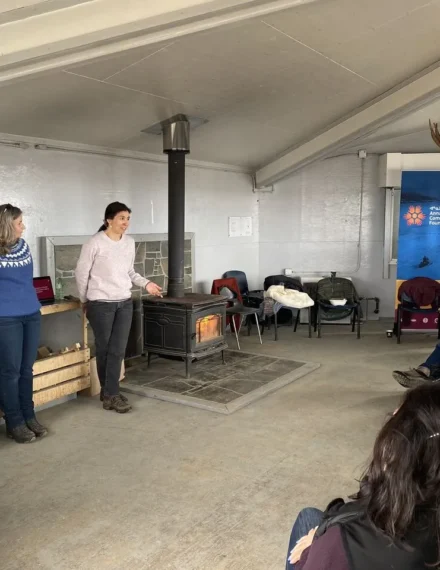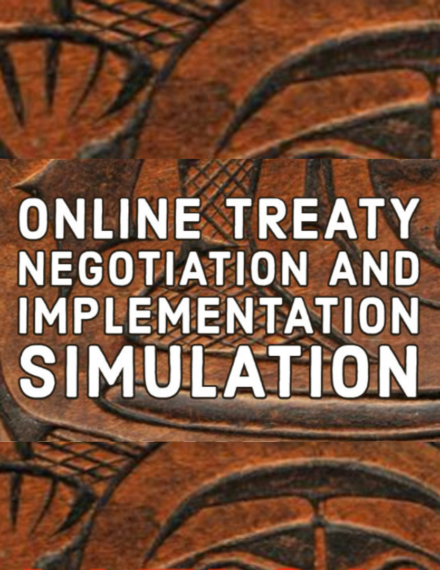
Starting December 2018, Alternatives Journal published an eight-part series on the 2015-2017 Jane Glassco Northern Fellows policy papers, which address some of the most pressing issues facing the North. This blog was originally published on February 4, 2019 at https://www.alternativesjournal.ca/community/blogs/aj-special-delivery/waste-management-and-circular-economy-north
Every year, Canadians divert approximately nine million tonnes of organic and recyclable waste from our landfills.[i] From coast to coast to coast, municipalities are struggling to adapt to changing consumer behaviors and to properly collect, sort, clean and repurpose waste.
But how do recycling challenges facing northern communities like Yellowknife, Northwest Territories compare to southern Canadian municipalities?
The types of waste being produced today are different than in the past. A key component to building a circular economy is that producers responsibly manage the waste created by their products. “Watching Our Waste-Line” is a policy paper from Dawn Tremblay, a recent alumna of the Jane Glassco Northern Fellowship program. In her paper, Tremblay looks at how her Territory manages electronics, tires, and how her hometown of Yellowknife manages organic waste.
Electronic Waste
When the Northwest Territories (NWT) introduced electronic waste disposal fees in 2016, the government’s website estimated that “transporting electronics from a typical NWT community and processing them costs about $5,000 to $8,000 per load.”[ii]
These costs are a significant challenge for a small territory. However, the Territorial government was able to look at other Canadian jurisdictions for successful examples of government programs that divert electronic waste from landfills.
The NWT modelled their electronics recycling program on programs in Alberta and Ontario. Environmental handling fees were added to consumer electronics at the point of purchase, both in store and online. For instance, a 45 inch television would have a $40 fee added at the point of sale in Ontario, the comparable fee would be $39.50.[iii]
Tire Waste
Tremblay believes that the NWT can replicate successful tire-recycling programs found across Canada. The NWT and Nunavut are the only Canadian jurisdictions without tire stewardship programs.
“Sometimes [tires] go directly into the landfill and sometimes they are piled in a separate area,” Tremblay writes. “Tires are flammable and piles of tires are a breeding ground for mosquitoes when water pools in them. If they burn the resulting toxins reduce air quality and can cause health and safety problems.”
Her recommendation is to implement a tire stewardship program similar to those across Canada. A fee – typically ranging from $3 to $7 for passenger vehicle or light truck tires – could be charged at the point of purchase with revenues being used to finance recycling. It is a similar strategy to the NWT’s successful approach to divert beer and wine bottles from landfills.
Organic Waste
“Putting organic material in a landfill takes up valuable and costly space,” Tremblay writes. The City of Yellowknife estimates that expanding their existing landfill by building just one new disposal cell costs $3.5 million – not including operational costs. In Yellowknife, 40 per cent of household waste are compostable organics.
The fees for businesses to dispose of waste in Yellowknife reflect a desire to divert waste. For instance, a commercial tipping fee for mixed waste is $121 per ton whereas organic waste is just $34 per ton[1]. Although a green cart program exists for all single-family dwellings, participation is minimal in the business sector including multifamily dwellings.
Tremblay thinks there would be environmental and employment benefits for Yellowknife if the city were to implement a mandatory organic waste diversion program like those found in cities such as Halifax. She thinks that the program should phase in and clearly publicized before making the program mandatory. Public education is key to better recycling and composting habits.
To read Dawn Tremblay’s policy paper – including detailed analysis of Yellowknife, NWT’s waste management programs – as well as other policy work from the Jane Glassco Northern Fellows, please visit www.GordonFoundation.ca/resources/fellowship.
The Gordon Foundation is a charitable organization dedicated to protecting Canada’s water and empowering Canada’s North. The Jane Glassco Northern Fellowship is a crucial part of our mission to promote innovate public polices for the North and amplify Northern voices.
Breaking Down Colonial Barriers Through Education (Mar 4, 2019)
Transforming Nunavut’s Criminal Justice System (Feb 25, 2019)
Nunavut Land Claims Agreement and Arctic Governance (Feb 11, 2019)
Waste Management And the Circular Economy of the North (Feb 4, 2019)
Keeping Aboriginal Youth out of the Correctional System (Dec 10, 2018)
Encouraging Closer Collaboration Between Scientists & Yukon First Nations (Dec 7, 2018)
Recruiting Indigenous Physicians in the NWT (Dec 3, 2018)
Highlighting Policy Proposals from the Jane Glassco Northern Fellowship Program (Nov 30, 2018)
[1] https://www.yellowknife.ca/en/living-here/fees.asp
[i] Hounsell, Kayla, “Canadian Municipalities Struggling To Find Place For Recyclables After China Restricts Foreign Waste”, CBC News (Mar 29, 2018): http://www.cbc.ca/news/technology/garbage-recycling-china-plastics-canada-1.4586602
[ii] Quenneville, Guy, “New N.W.T. recycling fee program for TV laptop purchases draws complaints from retailers,” CBC News (Feb 24, 2016): http://www.cbc.ca/news/canada/north/electronics-recycling-fees-hit-nwt-1.3461322
[iii] Quenneville, G.


